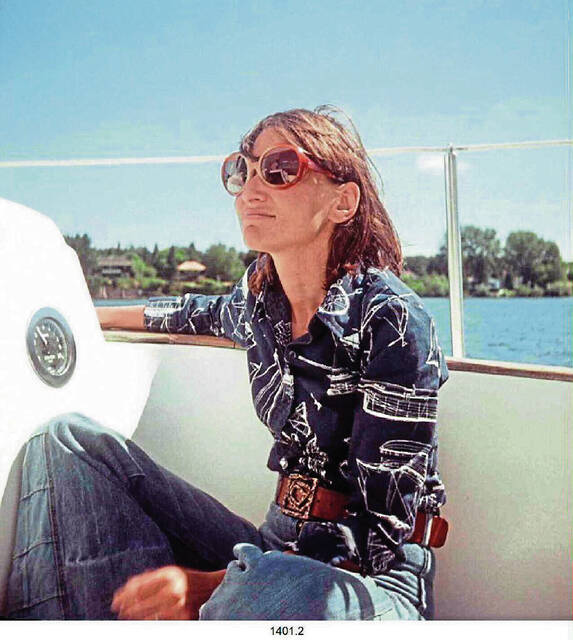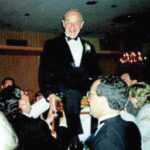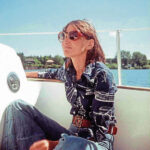They were grandparents and siblings, children and spouses.
They were doctors and dentists, nurses and accountants.
They were 11 people who were supposed to be safe in a place that they loved.
Last week marked the start of the final, sentence-selection phase in the trial of Robert G. Bowers, 50, of Baldwin, convicted in the Oct. 27, 2018, attack on the Tree of Life synagogue building in Squirrel Hill.
A jury found him guilty of all 63 counts against him on June 16, and that same panel found him eligible for a possible death sentence on July 13.
On Monday, the prosecution began the heart-rending process of introducing the jurors to exactly who the victims were and what their loss has meant to their loved ones and the larger community.
The victims, who were members of the Tree of Life-Or L’Simcha, Dor Hadash and New Light congregations, were Rose Mallinger, 97; Bernice Simon, 84, and her husband, Sylvan Simon, 86; brothers David Rosenthal, 54, and Cecil Rosenthal, 59; Dan Stein, 71; Irving Younger, 69; Dr. Jerry Rabinowitz, 66; Joyce Fienberg, 75; Melvin Wax, 87; and Richard Gottfried, 65.
Over 2½ days, the government called 22 witnesses before the defense started making its own case in mitigation, which is expected to last for several more days.
The prosecution believes Bowers should pay for his crimes with his life, while the defense has asked the jury to spare their client, arguing that mental illness and a traumatic childhood mean he should spend his life in prison.
Below is a summary of the witnesses, their testimony in the case and how long they were on the stand.
1. Carol Black (32 minutes)
Black, a member of New Light Congregation, survived the synagogue attack, though her brother, Richard Gottfried, was killed.
She told the jury about Gottfried, the kind of man he was and the relationship they had.
Her brother was warm and loving and generous. He was always active and loved sports. They ran the Great Race together often, and they shared Pitt football season tickets for 35 years. He loved to critique the marching band and its lines.
“You all would have loved him,” she told the jury.
2. Margaret “Peg” Durachko (26 minutes)
Durachko married Gottfried in 1990 after meeting him in dental school. They shared a practice, which she sold after his death.
“It wasn’t any fun anymore to practice. Half of me was gone,” she said.
Durachko told the jury about her husband’s determination and love of life.
After needing surgery to repair his quadriceps muscles in both legs in January 2018, Gottfried was determined to still go on a cruise they’d planned for June of that year.
Despite being in straight-leg casts until late April, he managed to not only go on the trip, she said, but never even unpacked his cane.
Her husband lived by the motto “We’re going to do this while we can.”
3. FBI Special Agent Samantha Bell (46 minutes)
The case agent in the Bowers investigation, Bell recounted for the jury some of the emails sent between Bowers and his mother in the months leading up to the attack.
In them, the defendant attached YouTube videos of antisemitic content.
Regarding one, his mother, Barbara Bolt, wrote back on Sept. 10, 2018: “This might just be the most horrible video I’ve ever watched.”
Bowers wrote back, “Let me see if I can up the ante,” and sent another video.
4. Diane Rosenthal (38 minutes)
Rosenthal’s brothers, Cecil and David, loved attending Tree of Life.
She told the jury that “the boys,” as they were affectionately known, had intellectual disabilities as a result of Fragile X syndrome.
Despite being told in the 1960s that the brothers should be institutionalized, Rosenthal said, her parents fought to keep them in their home.
She called it “the best thing that ever happened to me and my entire family.”
Rosenthal told the jury that Cecil was always incredibly social and David was shy.
As adults, they moved to a home operated by Achieva and held jobs.
Their favorite thing was to return to their parents’ home for weekend visits.
Their parents said the impact of their deaths is immeasurable.
“I woke up in the morning with two loving sons,” said Joy Rosenthal, their mother, in a recorded video. “I went to bed that night with only memories.”
5. Anthony Burke (26 minutes)
A Pittsburgh SWAT officer, Burke was shot in the right wrist as he reached into an upstairs classroom of the synagogue to help drag wounded officer Timothy Matson to safety.
Burke suffered nerve damage. Two bones in his wrist were destroyed.
“I thought they were going to amputate my hand,” he said.
He has had four surgeries and has regained about 80% use of his hand.
“It’s just something I’m going to have to live with for the rest of my life.”
6. Jodi Kart (32 minutes)
Kart told the jury about her dad, Melvin Wax.
He grew up in the Hill District and lost his father when he was just 4 years old. Wax started working at 12 and later was drafted into the Army during the Korean War. He served in Germany, where he kept his Judaism to himself.
“He was very much aware of antisemitism, and I was raised that way, as well,” she said. “He lived it. He had witnessed the Holocaust.”
After his military service, Wax went to Robert Morris University for accounting and later worked at a small steel-drum company.
He was married to his wife for 50 years before she died in 2016. Wax loved to tell jokes.
When Kart went to his apartment after the attack, she found he’d already bought her birthday card.
“I love you very much,” it said.
“The words weren’t necessary,” Kart said. “That was the last message I received from him.”
7. Daniel Kramer (53 minutes)
Kramer told the jury about his brother-in-law, Dr. Jerry Rabinowitz.
He said Rabinowitz was like a country doctor — he took his time with patients, made them feel heard and even made house calls.
He lived by the motto “It’s better to be kind than right.”
Kramer said Rabinowitz grew up in Newark, N.J., and got scholarships to undergraduate and medical school at the University of Pennsylvania.
Rabinowitz moved to Pittsburgh in 1976 and loved the city. He met Kramer’s sister, Mary, at a Yom Kippur event to break the fast in 1993. They married in 1997.
The couple was active at Dor Hadash. In retirement, Rabinowitz had planned to read the entire Talmud — all 42 volumes.
8. Barbara Burstin (14 minutes)
A historian and lecturer, Burstin is an expert on Pittsburgh Jewish history.
She told the jury that Jewish immigrants came to Pittsburgh in the 1840s, settling Downtown and moving to what is now the North Shore in 1907. They later moved to the Hill District and Oakland, before settling in Squirrel Hill on a large scale in the 1920s.
Of 40 Jewish organizations in the Pittsburgh area, 34 of them are in that city neighborhood.
9. Michele Weis (24 minutes)
Weis told the jury about her parents, Bernice and Sylvan Simon.
Bernice worked as a nurse before retiring in 1999, and her father was an accountant, after serving as a paratrooper in the Army. He retired in 1997.
After retirement, they volunteered at a senior center in Turtle Creek.
Bernice loved to cook. Sylvan loved his wife’s chocolate cake.
Weis called her mom her best friend. She talked to her two or three times each day.
10. Michael Simon (28 minutes)
Simon also testified about his parents, Bernice and Sylvan.
They married in the Pervin Chapel at Tree of Life in December 1956.
Simon called them the poster children for marriage.
“They were a remarkable couple,” he said. “The way you should treat each other.”
11. Lisa Burns (14 minutes)
Burns told the jury about the impact of the attack on her boyfriend, Pittsburgh police Officer Dan Mead, who was shot in the hand that day.
Mead, who used to be a carpenter, has suffered debilitating physical impairment since he was shot, Burns said. He must use a wheelchair for neuropathy in his feet that makes it impossible to walk.
Mead has had eight surgeries on his hand and still can’t use his pinky or ring finger. He can’t drive or return to work.
Emotionally, she said, he calls himself a “crippled, worthless piece of (expletive).”
12. Anthony Fienberg (27 minutes)
Fienberg, who lives in France, described his mom, Joyce Fienberg, as doting — “like Mary Poppins.”
Joyce Fienberg was born and raised in Toronto. She moved to Pittsburgh in 1980 with her husband, Stephen, a statistics professor, and their sons.
“When I think back, she was our world,” Anthony Fienberg said. “Our world revolved around her. … She was the guiding principle and, you could say, light when we were growing up.”
The words that remind Anthony of his mom, he said, are “loving kindness.”
Joyce volunteered in the playroom run by the National Council of Jewish Women at the Allegheny County Courthouse and worked with the group Family House.
13. Howard Fienberg (28 minutes)
He told the jury that his father had cancer for five years, and his mom cared for him the whole time. She also was known for taking the families of new faculty members at her husband’s work under her wing.
But her family was most important.
“Grandkids were everything to my mom,” he said. “She would do anything or go to any length.”
14. Judith Kaye (24 minutes)
Kaye began dating Younger in 2012.
She told the jury he was kind and loving.
“It took me 60 years to meet him,” she said. “He was the late love of my life. I felt things with him and for him I had never felt before with anyone.
“His death has left me feeling very alone and lost and missing him very much.”
Kaye, a psychiatrist, said that every time she and Younger went out, it felt like a first date.
He was warm and gregarious, unselfish and generous.
Younger, who had two children, gushed over his grandson, Kaye said.
“It was as if his heart was going to explode because he couldn’t contain all the love he had for him.”
15. Stanley Mallinger (34 minutes)
Stanley Mallinger told the jury about his mother, Rose, the oldest of the synagogue shooting victims.
She loved to dance and had five siblings. In her later years, he lived with her.
Rose married her husband, Morris, in 1950 and had three children. The family moved to Squirrel Hill in 1954 and started attending Tree of Life.
Rose was the center of her family, he said.
“Everything revolved around her.”
16. Amy Mallinger (16 minutes)
Rose’s granddaughter, Amy told the jury how much she loved her grandmother.
She and her twin brother visited often, playing in the yard with her.
When they slept over, she made them blueberry pancakes. Among their favorite thing to do in Rose’s later years was to sit on the front porch and watch the squirrels run across the power lines.
“She meant everything to us,” Amy said.
17. Sharyn Stein (27 minutes)
Sharyn Stein told the jury about her husband, Dan Stein.
He majored in Spanish in college but worked in outside sales for a plumbing company.
He was proud of his Judaism and marked the anniversary of his bar mitzvah, which was held at Homestead Hebrew Congregation, in his prayer book each year.
The Steins moved to Squirrel Hill in 1975 and had a daughter and a son.
He loved being a father and was active in New Light Congregation, serving as president at one point.
In retirement, Stein volunteered at a local food pantry and for a program at the Jewish Community Center.
In March 2018, their first grandson was born.
18. Joseph Stein (27 minutes)
Joseph Stein told the jury that his dad loved the Pittsburgh Pirates and was proud of him and his sister.
Dan Stein would go with his daughter on race trips often to raise money for charity.
But Joseph told the jury he only really began to appreciate the sacrifices his father made for him after he became a dad in March 2018.
Now, his son is a constant reminder.
“All the sacrifices my dad made for me, I’m now making for my son.”
19. Tim Matson (28 minutes)
Matson, a Pittsburgh police officer who was shot multiple times responding to the Tree of Life attack, has had 25 surgeries.
He was shot in the head, left leg, left arm and right kneecap.
He has had skin grafts and had to learn to walk again.
On a scale of 1 to 10, his pain sometimes ranked a 15 or 20, Matson said.
His new normal is a 4.
“It started taking its toll on me,” he said. “Since the incident, I haven’t had a day without pain.”
Matson, who was hospitalized for four months, said he contemplated taking his own life but didn’t after realizing how many people loved and supported him.
He has returned to work and goes to therapy, what he calls “happy school,” twice a week.
20. Michele Rosenthal (41 minutes)
Michele Rosenthal described for the jury how she learned her brothers had been killed in the attack and the anguish she had in having to tell their parents.
“They never expected to bury their sons,” she said.
Michele told the jury that the rabbi at Tree of Life created a service for them and others with intellectual disabilities called “A Need for a Special Shabbat.”
Her brothers were especially proud to lead the program.
Michele also told the jury that her brother, David, had a special love for firefighters and law enforcement and often would go to hang out at the fire station near their home growing up.
After the attack, members of the station showed up at the Rosenthal home and presented their parents with an honorary badge. They also asked if they could participate in the funeral procession for him.
“(That) meant the world to all of us,” she said.
21. Andrea Wedner (17 minutes)
Wedner, Rose Mallinger’s daughter, was also shot that day in Pervin Chapel.
She told the jury her arm has required multiple surgeries and a skin graft.
She’s also had shrapnel removed from her forehead.
“I’m haunted by what happened to me and by what I heard and what I saw that day,” Wedner said.
She told the jury she used to cover her arm to hide her scars.
She doesn’t anymore.
“I just decided I have to live my life normally,” Wedner said. “And I don’t mind if people ask me about them. … I’m not hiding them.”
22. Daniel Leger (50 minutes)
Leger, a member of Dor Hadash, also survived the synagogue attack.
Gravely wounded, he lay on the steps inside the building for 45 minutes before reaching up for a passing tactical medic who responded.
Leger was shot in the abdomen and nearly died.
He had emergency surgery and was on a ventilator for several days.
Although he has never contemplated taking his life, Leger told the jury he has thought that it would have been better had he died that day — so he would not be a burden to his family.
He went from 145 pounds to 105 and now has to use a colostomy bag because of the damage done to his intestines.
Leger was unable to return to his work as a hospice nurse or chaplain and said he is no longer as active as he once was.
“That really gets me down sometimes,” he said. “I feel very diminished.”
23. Dr. Katherine Porterfield (1 hour, 59 minutes)
A clinical psychologist, Porterfield was retained by the defense team to conduct a psychosocial history of the defendant.
She spent about 200 hours interviewing 17 people and reviewing 21,000 pages of records.
Porterfield told the jury that Bowers’ family tree for several generations shows people who had mental illness, substance abuse struggles and neurological impairment.
His father committed suicide when he was 7, and his mother was repeatedly hospitalized with depression.
On a survey of Adverse Childhood Experiences, she said, Bowers had seven.
“Chronic stress changes kids’ developing brains and nervous systems, leading to physical disease, mental illness and violence,” she said. “That dose of trauma really matters.”
23. Dr. Katherine Porterfield, continued (5 hours, 16 minutes)
Porterfield, who spent most of the day testifying, said Bowers’ mother, Barbara Bolt, was repeatedly told throughout her son’s childhood that he needed help, but she consistently failed to follow through.
The psychologist told the jury the defendant displayed suicidal behavior at ages 10, 13, 16 and 17 and was hospitalized multiple times.
Among the problems he endured, she said, was an inability to regulate his emotions.
“He just can’t manage his feelings.”
After a lengthy hospitalization at 13, Porterfield said, Bowers showed signs of improvement. He was earning good grades and attending school. His attitude had improved. However, upon release, his mother never sought the recommended out-patient, follow-up care, and he quickly regressed.
Bowers dropped out of high school in 11th grade.
Throughout adulthood, Porterfield said, he had few meaningful relationships. He worked at Potomac Bakery in Dormont for 14 years before being fired and later worked briefly as a home health aide and truck driver.
24. Deanna Bowers (31 minutes)
Deanna Bowers was married to the defendant’s uncle on his dad’s side.
She testified that she never met Bowers’ father, Randall, and that her husband had a strained relationship with him.
She also confirmed what Porterfield had learned about Bowers’ troubled grandparents and his grandfather’s abusive treatment of his grandmother.











